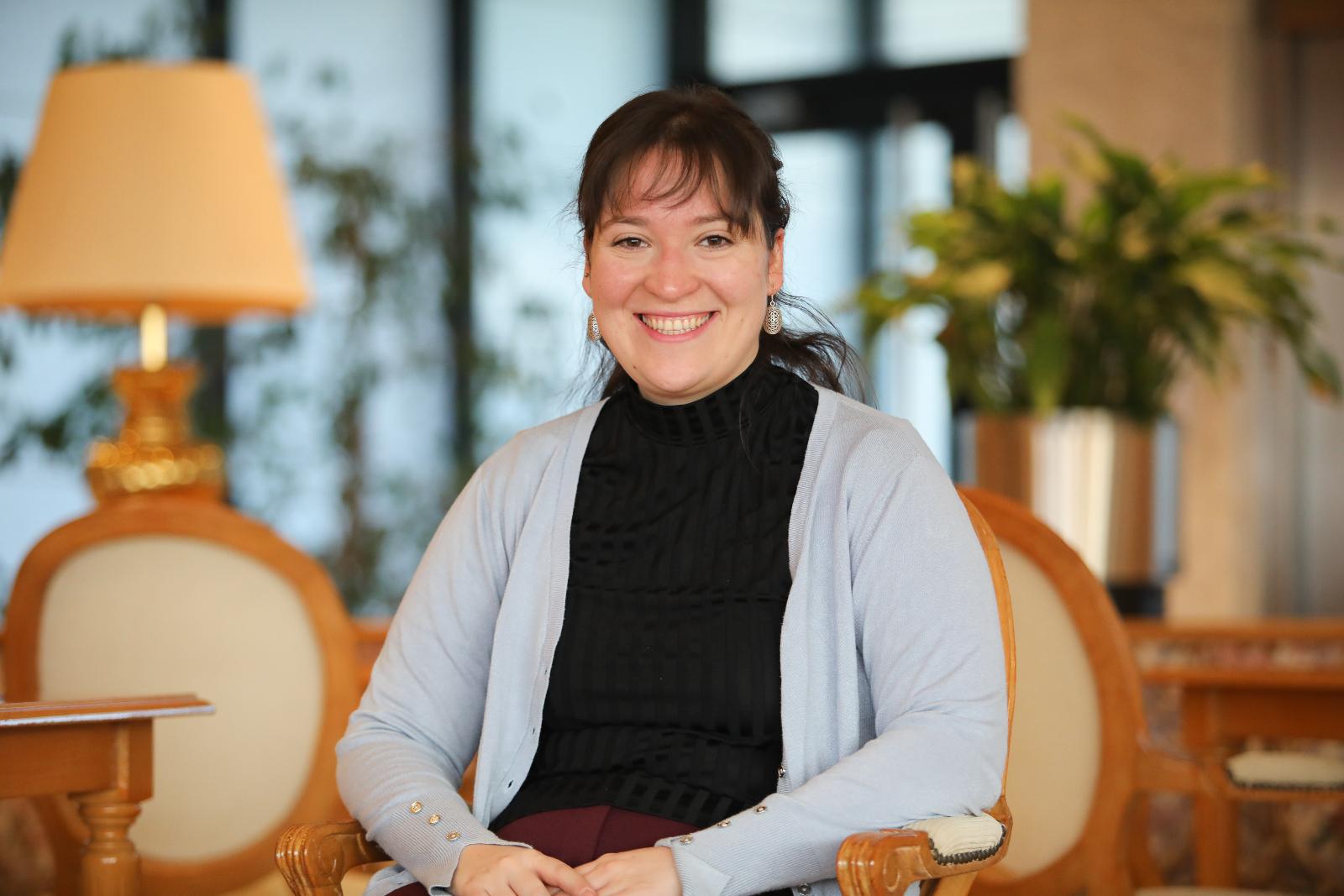Collective residencies / LINGUISTIC RIGHTS II / Olot
MACARENA DEHNHARDT AMENGUAL
From Tuesday, 2 November 2021 to Monday, 8 November 2021

Bio
Macarena Dehnhardt is a Chilean Ph.D. student in the program of Translation and Intercultural Studies, taught by the Universitat Autònoma de Barcelona (UAB). In Chile, she obtained a bachelor’s degree in Hispanic Literature and Linguistic by the Universidad de Chile. Afterward, she fulfilled a master’s degree in the UAB. During the master, she began her research in the communication between the Chilean public services and the Haitians immigrants that arrived in Chile. For this purpose, she decided to work with the areas of Public Service Interpreting and Translation Policies. At present, Dehnhardt is developing an in-depth research about this topic in her Ph.D. thesis, funded by a scholarship provided by the Chilean State. The aim is to analyze the Translation Policies that the Chilean public institutions have taken to overcome language barriers with Haitians and how these policies are embodied in different initiatives in the healthcare, educational and justice domains.
Project
During my stay at Faber, I will explore the following research question: How are the linguistic rights of indigenous people and immigrants in Chile being protected? Bearing in mind this question, I will create an archive that includes institutional documents, particular initiatives, and legal texts related to the protection of linguistic rights, specifically the right to use your language in public space. The idea is that this archive could be open to the public and updated periodically. For this purpose, we will work with our areas of study: Public Service Interpreting and Translation Policies.
Linguistic Rights in Faberllull: The experience of connecting with Catalonia and opening perspectives
After the pandemic and lockdown year of 2020, connecting with the real (and not virtual) world became a yearning that I was indeed able to achieve this November 2021. I think all of us residents were eager to connect again, to share in extended conversations that were not mediated by the screen. Our first experience, as a group working on language issues and language rights, began in 2020 in the virtual version of this residency. Although it was a good first instance to get to know each other and understand our work interests, it does not beat the experience we lived under the eaves of La Garrotxa, and thanks to the careful organization of Faberllull, with Pepa Pasamón and Gavina Freixa.
One of the most important things to share, regarding my stay in Olot, is the possibility to experience multiculturalism, to meet people from different places (Nigeria, India, Algeria, Italy, Netherlands, Catalonia, Syria) and with a wide range of interests, of issues that in my life as a Chilean I never heard. I open my eyes, then, as I share every breakfast and every dinner with my fellow residents, I understand their points of view and the reasons for their work. I compare their perspectives with mine, with my experience in Latin America, and generate new reflections, this time from a multicultural point of view and understanding my place.
In no other academic situation, I have had the opportunity to share so comfortably with researchers and artists, in a context of trust, but without leaving aside the constant analysis or instances of learning. Undoubtedly, this is one of the experiences I value most in my years as a doctoral student, since it has allowed me to speak and think without restrictions on linguistics and linguistic minorities, but, above all, it has allowed me to get out of the confinement generated by researching so assiduously on the same topic.
I must make a special mention of the possibility that Mariona Miret, Yael Peled, Faberllull, and Lingua Pax gave us to access a multilingual instance that exceeds the rational analysis of endangered languages. The activity "Grieving the loss of my language" has been a unique experience since I became interested in language issues. It is undoubtedly valuable to open a space that incorporates the emotions arising from the loss of our language. Thus, a new path is traced for all those who experience this loss, this pain, and who can (and will be able to) feel accompanied thanks to the activity.
I want to leave one last paragraph to highlight the connection generated in Olot with the Catalan community. Daily, sharing with the people of the Riu Fluviá, the people of the city, and the Catalan residents allowed me to deepen my knowledge of the language, cuisine, and Catalonia's culture in general. Undoubtedly, this would not have been possible without Faberllull, as I would not have known about La Garrotxa, the ratafia, or the particularity of the Catalan accent in this area. Therefore, this experience has been an immersion in multiculturalism that I will undoubtedly continue to evoke in the future.
